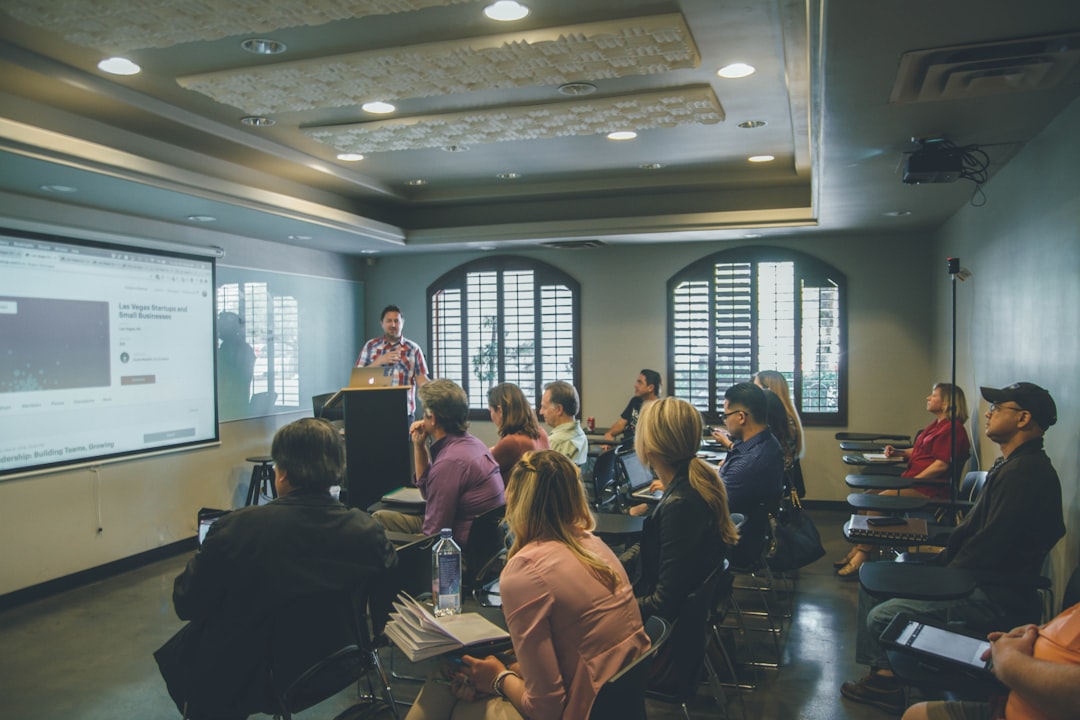Lecturer’s duty of care
Representing all students
I’ve said this before, but I’ll say it again. I have views. You may be able to discern what they are. I am more than happy to chat with you about them in an open and civil fashion.
I make it clear to my students: they do not have to agree with my views. I don’t presume that all right-thinking people agree with me; in fact, I know many very good people who disagree with me strongly.
I will not mark students down or humiliate them if they disagree with me, and in fact, an intelligent, civil challenge to my ideas is one of my favourite things. I love being made to think. There may be angles I haven’t thought about before. It’s how I learn.
As a lecturer, I have a duty of care towards all students. It should not matter what their background is, or what their beliefs are. I hope that my students can attest that I do care.
I mark assessment blind, so that I am impartial and fair. I try to give detailed reasons for my decisions so that they know how they can improve and why I made the decision I did. I try to treat everyone equally.

I was telling my husband about “my students” (talking about my JD students from last semester). My husband said, “But you’re only teaching Masters’ students this semester—” which is true. He continued, “—they’re not technically your students right now.”
I responded, “once you are my student, you are my student for eternity.” I am afraid it is true. You may become a Supreme Court Judge, but be warned: you are still my student first and foremost. And I will check in, even if I am not your lecturer any more, if I am concerned about you. I don’t care who you are, or whether you agree or disagree with me.
There have been rare instances when I have hoped that a student will not ask me to be an academic referee, because the student has been rude or unprofessional to me, and I would have to regretfully decline. So far, thankfully, I haven’t been faced with this. Even then, if the student were in trouble, I would help them.
If universities wish to welcome students from diverse backgrounds, they must also care for and support all students.
Obviously, there will be times when supporting all students will involve difficult choices. One group will demand that the university “pick a side” in order to properly express care for that group. They will say that if the university does not “pick a side”, they are failing to care. They may assert that the university must agree with everything the particular group says.
It is not the duty of a university to affirm our personal religious, political or moral views. The very point is that universities are—or should be—a place for open discussion of views, without fear of violence or threat.
University is a place for tolerance of different viewpoints, not for affirmation.
In my recent post, I argued that the Melbourne Branch of the NTEU should not have passed a strongly partisan motion supporting one side in the Israel-Gaza conflict.
The union chose to support only some members affected by a terrible conflict, and not others. They had a duty to look after all members, just as I have a duty to look after all students. With great regret and anguish, after seventeen years, I resigned from the union.
I feel like a broken record right now, but if you’re called on to make a decision in a contested matter, “picking a side” can be difficult. I’ve worked for a trial judge. It is not generally something to be done hastily, in response to submissions by the loudest and most partisan among us, simply because our heartstrings are plucked, or we are scared that we will be derided or threatened if we do not comply.
At common law, it is very rare for a court to judge a matter after only hearing one side of the story. Multiple opportunities must be given to affected parties. This is why going to court is not cheap.
A court will grant an ex parte injunction restraining certain actions only in very urgent circumstances. “Ex parte” means only one party turns up to court, with an urgent application for relief. Generally speaking, if the judge grants the injunction, it will only operate for a matter of days, and the matter will be called back before the court to hear from all parties (“inter partes”).
Why do judges do this? Making a decision after you’ve listened to only one side of the story can produce great injustice. Even with the best will in the world, the aggrieved party tends to interpret events through the lens of what is most congenial to them. Everyone does this. It’s called a “self-serving bias”.
It is necessary, therefore, to acknolwedge that others may have a different view of events, and to think carefully about a fair response. It’s rare that a complex, long-running dispute will have a simple, straightforward answer. If someone suggests that a straightforward answer is available for such a dispute, I’m on my guard. It’s possible, but it’s very unlikely.
I have never been comfortable coming to swift judgement (unfortunately this means I’m a slow marker). I don’t do “hot takes”. Sorry. If that’s what you want, go elsewhere. If I seem to come to a conclusion quickly, it’s generally because I have been thinking about an issue for years. That’s why I am interested in other views, even views which offend or deeply challenge me. I’m always thinking.
It is not my place as a lecturer to stand in judgement of my students’ political or religious beliefs, as long as my students behave in a professional and civil manner in class, and engage with the subject material I teach. I am their teacher, not the moral arbiter of their private choices or beliefs.
I do have a duty to ensure any disagreement in my class is productive, and provides learning opportunities.
At base, my role is to teach my students, and ascertain how well they understand the principles of private law, not to convert them to my way of thinking. What they do with their beliefs, and with the knowledge I seek to impart, is up to them.

As a lecturer, I want any student who is distressed by current events to feel comfortable explaining to me how they are adversely affected, without the student worrying that I am going to judge them or hate them simply because they have connections with one group or another. If students have connections with a country which is currently at war, they are likely to have lost friends or family members, or to know people who are under attack. I must be both compassionate and professional in such circumstances.
Maybe, if I were a global military policy expert, or I had expertise in international relations, I might be able to opine on what should be done in international disputes, but I’m not.
Of course I have private views, but they’re not straightforward, and I don’t pretend to know everything. While I have many areas of expertise—private law, comparative law, legal history, animal law—I don’t delude myself about my limits.
I realise this is no longer fashionable, but I choose to be guided by the idea that we all have a shared humanity. All I can do, in these terrible times, is to act with humility and care for people when I deal with them in everyday life.
I will always look out for my students, all of them, regardless of their backgrounds. It is my duty and my vocation.


I do wonder about the limit of duty of care that can realistically be provided by a lecturer. If a conflict in the Middle East disturbs a student, is the lecturer the right person to provide care in the first place? Or is it an indication of the ever-increasing responsibility of academics to do things outside their expertise? Food for thought!
Wonderful sentiments and a fantastic attitude, reminds me a little of the regretted Ian Malkin and Howard Luntz.
Unfortunately there is an increasingly Stalinist approach to these things, under which "not enthusiastically for" is interpreted in complete bad faith as "against". There was some of this already when I was at school and at uni, I can only imagine from what I hear (including from my kids) that it has gotten worse.
I hope that you do not have many if any such in your classes.